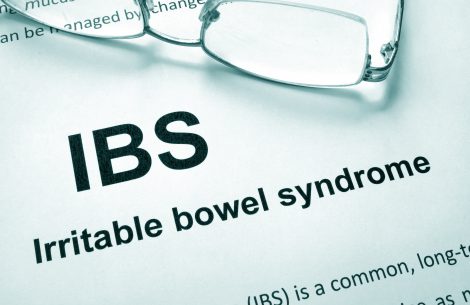Irritable bowel syndrome affects one in five people and mostly women. It’s estimated that between 10% and 15% of the population will experience IBS at some point in their life. Usually, it begins in the teen or young adult years.
While symptoms vary from person to person, irregular contractions of the bowel muscles cause the IBS symptoms. Symptoms may include:
- Unexpected diarrhea
- Constipation
- Alternating attacks of diarrhea and constipation
- Abdominal cramping
- Bloating
- Gas
- Mucus in the stools
Since attacks can happen out of nowhere, IBS can severely affect the quality of life for those who have it.
Cause of IBS
There are several theories to its cause, but medical experts have not determined one primary trigger. However, naturopathic medicine suggests a link between these conditions and IBS:
- Bowel inflammation or infection
- Brain-gut connection
- Stress
- Food intolerance and allergies
- Bacterial overgrowth
- Lack of healthy bacteria (microbiome imbalance)
Naturopathic medicine is very effective in treating the above conditions, and therefore it has also been successful in treating IBS.
Types of IBS
Most people are not aware that there are two types of IBS: Spastic colon IBS is characterized by pain after eating, constipation, diarrhea, or a combination of constipation and diarrhea. Sudden diarrhea after eating, while eating, or after waking in the morning is painless diarrhea IBS.
Treating IBS Naturopathically
A visit to the naturopathic doctor will include a detailed discussion about your health, including lifestyle, and other questions. They may order various tests to determine if things like bacteria overgrowth, yeasts, or parasites could be an underlying cause. You may also be tested for food allergies or sensitivities. The process is like putting a puzzle together; they put the assorted pieces of your health makeup together to get a whole picture of what could be causing the IBS.
That said. One way that naturopathy treats IBS is the restoration of the digestive tract that may include changes to diet and lifestyle.
Diet
Dr. Andrew L. Rubman, ND, CEO of Southbury Clinic in Connecticut who has been treating IBS patients for 25 years suggests meals that combine simple carbohydrate foods with saturated fats may create a scenario for IBS to develop. Because these types of meals can take from two to three hours to digest, it gives microorganisms time to colonize the stomach lining and cause digestive problems.
What Not to Eat
It’s not only what you eat, but what needs to be eliminated that helps restore the digestive system to its healthy state. To improve gut health and help heal IBS, avoid these foods:
- Simple sugar foods like sugar, white rice, foods made with white flour
- Caffeine
- Fried foods
- Processed foods such as deli meats, frozen pizza, canned or boxed foods
- Alcohol
- Hydrogenated fats that are found in margarine and many snacks like potato chips
What to Eat
Switch your diet from the above foods to eating more of these:
- Fresh vegetables
- Nuts and seeds
- Whole grains and fiber, especially if you have constipation
- Healthy oils like extra virgin olive oil
- Salmon and other foods that have omega-3 fatty acids
- Probiotics
- Water
Besides what to and not eat, these mealtime suggestions may also help improve IBS:
- Chew food thoroughly. It makes it easier for the body to break down the food during digestion.
- Reduce the amount of fluids you drink with meals. Drinking a lot of fluids with food can curtails the digestion process. Saliva is designed to help break food down; additional fluids weaken stomach acids making digestion less effective.
- Consider a digestive enzyme if you are over the age of 35. The body makes fewer digestive enzymes as we age. Digestive enzymes like hydrochloric and others help to break down food and reduce the colonization of microorganism in the stomach that can upset the digestive tract.
Other Suggestions
Food and techniques to improve digestion are not the only remedies that can help heal IBS. Here are a few other suggestions from naturopathic experts.
- Reduce stress. Meditation, yoga, exercise, having a hobby are a few ways to reduce stress.
- Keep a log of foods that trigger IBS episodes and avoid them.
- Track menstrual cycles and related IBS symptoms. Hormone fluctuations can affect IBS.
- Try acupuncture. Acupuncture has been shown to help some people with IBS.
Having irritable bowel syndrome in of itself can be stressful and make the situation worse. However, naturopathic medicine is designed to treat the whole person and not just the disease. So, a naturopathic doctor can be helpful in not only finding the underlying cause of IBS and managing the physical symptoms. They are also an excellent resource in helping you cope with IBS.
This information is for educational purposes only. It is not intended to diagnose, treat, or recommend any form of treatment or therapies.
References:
- Probiotics in IBS (January 3, 2018). Retrieved from https://ndnr.com/gastrointestinal/probiotics-in-ibs/.
- Rubman, Andrew L., ND. Natural Elimination of IBS Symptoms. Retrieved from https://www.naturopathic.org/content.asp?contentid=125.
- Shah, Sushma, Naturopathic Doctor. Irritable Bowel Syndrome. Retrieved from http://www.naturesintentionsnaturopathy.com/irritable-bowel-syndrome.htm.
- Rubman, Andrew L., ND, Natural Elimination of IBS Symptoms. Web.

